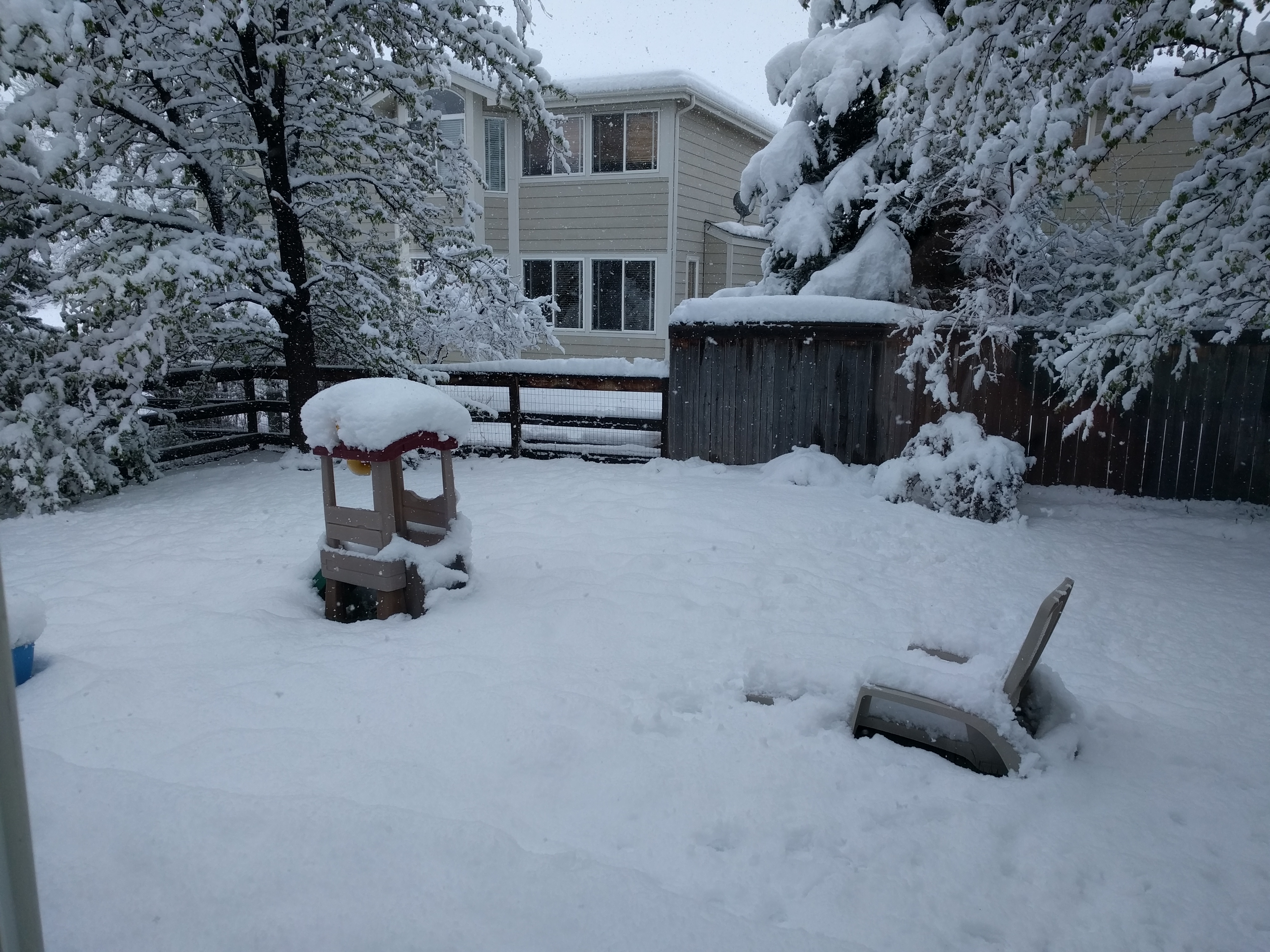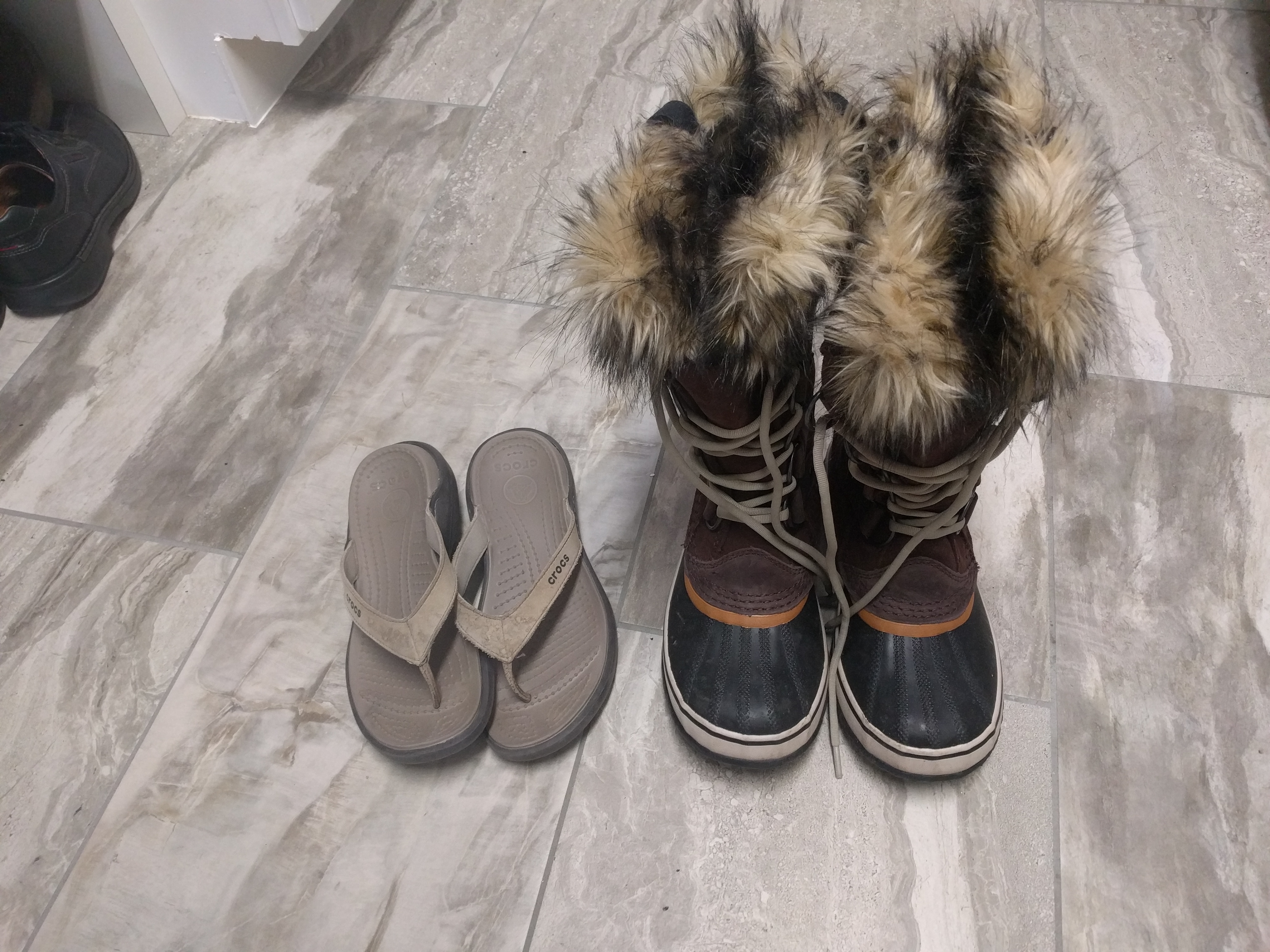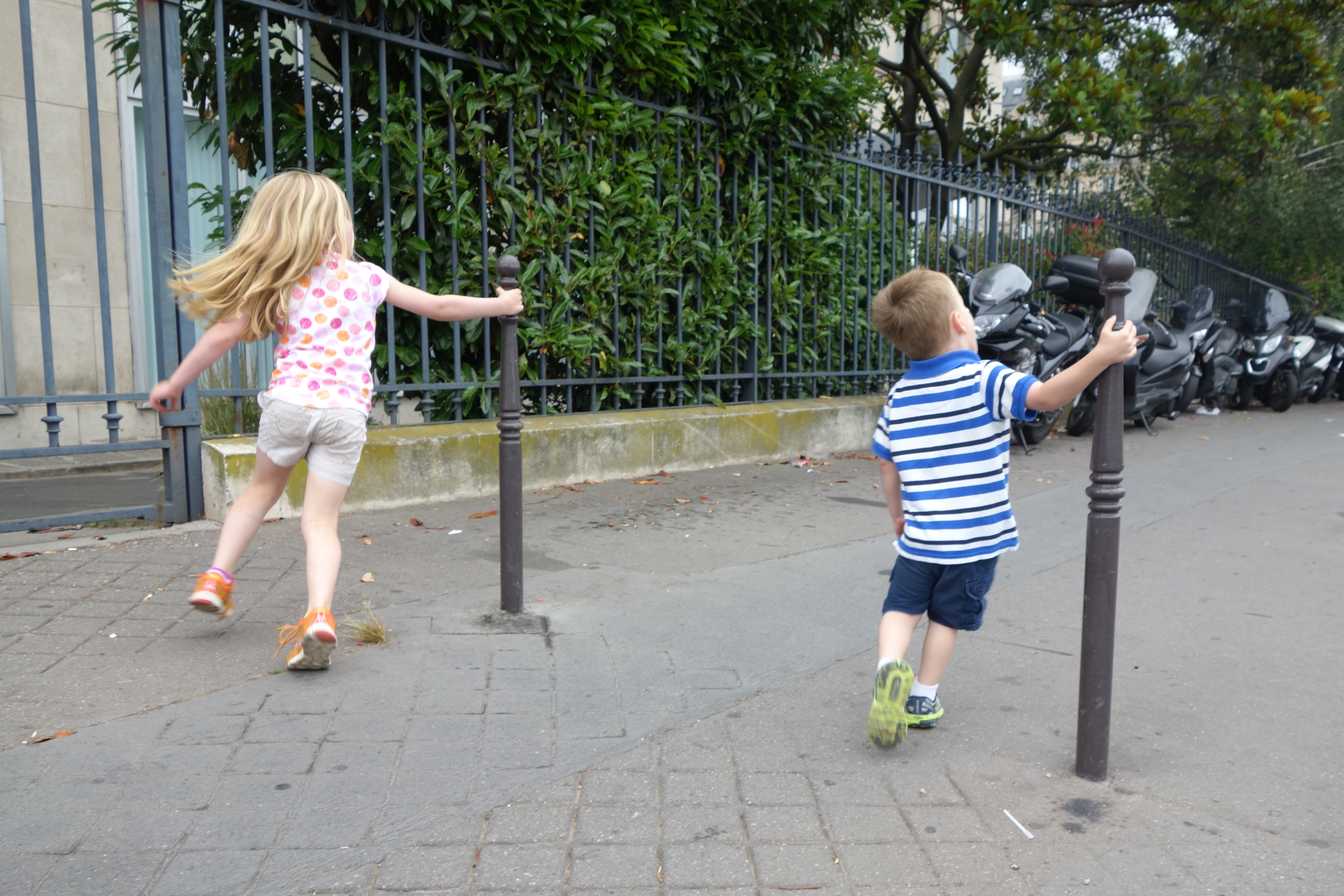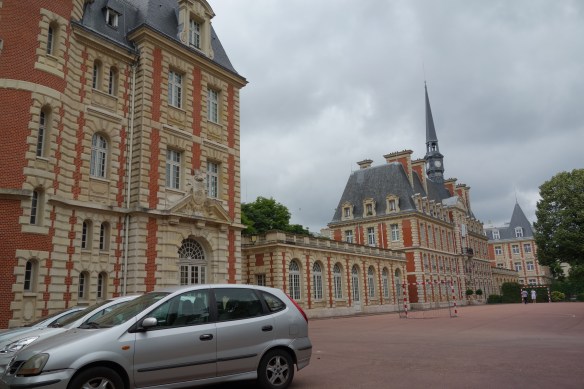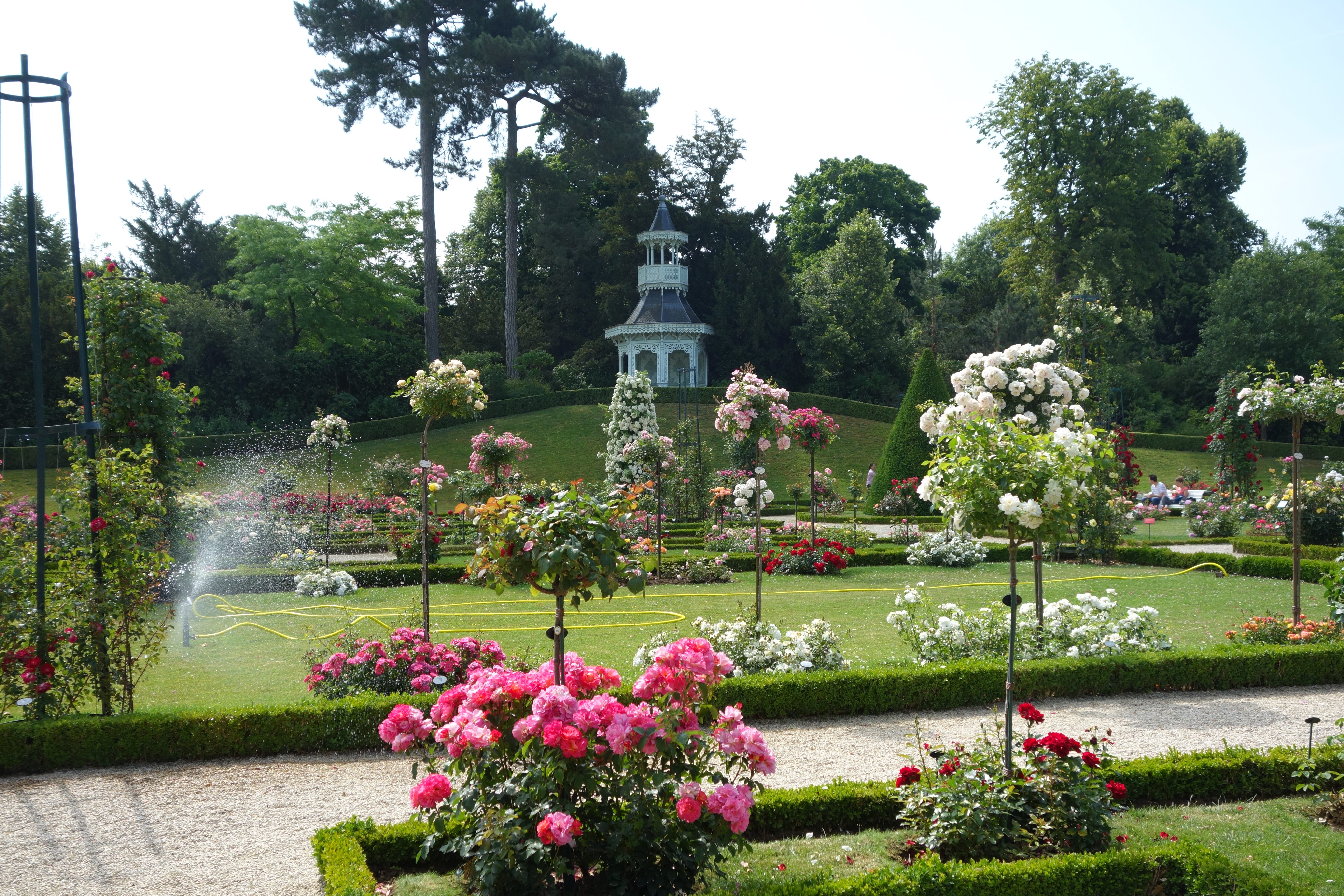I’m writing a series of posts on a trip I took to France 15 years ago. This is the second installment. See the introduction here and the first entry here.
My flight arrived in Paris the next morning, my third visit to Charles de Gaulle airport. The first two visits had brought me to tears, so excitement over my arrival was tinged with a touch of dread. I’d splurged on hiring a driver through the school for transportation to my host family’s flat. I exited the one-way doors into the waiting room where people clustered near the door, several of them holding signs. I spotted the sign with my name and the name of my school, held aloft by a large brown man wearing a dark suit and a broad smile.
I smiled back and approached him, then nerves got the best of me. My brain was muddied from lack of sleep and the sudden realization that now I had to use my French. And I couldn’t, in that moment, remember anything. Even the basics. So I pointed to the sign and then pointed to my chest, Tarzan-style minus the grunting.
He nodded and his grin broadened. He said something in French that I didn’t get, then took my two huge suitcases (packing light was a skill I had not yet developed) and led me to his car. I settled into the soft leather back seats and watched out the window, eagerly scanning for my first glimpse of Paris. Early morning grey skies hung low. The two-lane freeway heading south toward the city could be a freeway anywhere, yet was distinctly French with all the Peugots and Renaults, the squishy little vans (camions), the narrow long license plates with the large “F.” France.
“Parlez-vous Français ?” The driver tilted his chin to peer at me through the rear-view mirror.
“Oui. Un petit peu.”
“D’où venez vous ?” He asked me. Where are you from?
“Je viene de Californie.”
“California! Arnold Schwartzenegger!” He laughed a deep, rich laugh.
I couldn’t help but join him. We were all still laughing about our recently elected Terminator-turned-governor. Our Governator.
“Et vous? D’où venez vous ?” I asked him. His language was sing-songy – not the typical French accent.
“Vous parlez bien ! Avec un accent tres jolie !”
It was fun being the one with the pretty accent, and being able to understand what he was saying to me. I could feel myself blushing, though, because in that one sentence, I’d just spoken one of the easiest phrases, one of the first every French student learns, and had now nearly depleted my arsenal of French conversation. I knew a few hundred random vocabulary words and a handful of phrases, but no one ever responds to your textbook questions with the textbook answers, leaving the typical traveler stranded before a conversation can begin.
“De Martinique.”
Huh? “Où ?”
“The Caribbean. My family move here when I have three years.”
“Oh! You have a lovely accent.”
He laughed, again that rich, warm laughter. We passed over another small rolling hill and the industrial outskirts of Paris came into view.
“How long in Paris?” he asked me.
“Three months.”
“Three months! Your French will be completely current! Completely current!”
I smiled. “Couramment” was a French word for “fluent,” I assumed that was what he was getting at. It was an endearing mistake and an easy one to make. I wasn’t laughing at him – his English beat my French by far.
“I hope so,” I said. Fluent in French. What would that be like?
We entered the outskirts of the city. He pointed out Sacre Coeur perched on a hilltop and I caught a glimpse of the tip of the Tour Eiffel before he could point it out to me, jutting out of a maze of narrow streets and tall buildings. I sat up straighter in my seat. Paris unleashes a vitality in me. And here I was.
He exited le Périphérique, the freeway that forms a circle around Paris, and we dove into the city’s streets. It was still early on Saturday morning and the streets were nearly deserted. We sped through the seventeenth arrondissement, past brownstone buildings that hugged the narrow streets and drew me into an intimate welcoming embrace. I quickly lost all sense of direction but I knew we were heading in general toward the center of the city. I scanned the street signs – placards on the corners of the buildings. We moved from the seventeenth into the eighth arrondissement: getting closer. He turned onto Boulevard Malesherbes: my street. I leaned forward to better see the place I would be calling home for the next few months. I willed the car to keep going, wanting to be closer, closer, closer to the center, the heart of the city. The further we went, the closer we would be to the Paris I knew: The Latin Quarter, the Louvre. Keep going, keep going…. The numbers continued to count down and then the driver slowed and stopped. He pointed to one of many sets of wooden double doors embedded in the walls of the buildings.
I was early. Very early. I’d told my host family to expect me between ten and eleven, anticipating trouble at Charles de Gaulle. The thought that things could go smoothly there had never occurred to me. But here I was, and it wasn’t even 8:30 a.m.
“I’m really early,” I said. “I told my host family 10:00 or 11:00.”
The driver looked at the clock in his car. “Yes. You are early. A minute or a minute and a half.”
He put my suitcases on the curb and flashed a brilliant smile. “Welcome in Paris.”
I thanked him and he left. There was no way I was going to barge in on my host family that early; not the first impression I wanted to make. So I settled onto a bench near the building’s entrance with my backpack tucked under my arm and my suitcases pulled close to me. There I sat, exhausted, but unable to keep the smile from my face, for this wonderfully strange street was to be my home. Soon it would be familiar. A woman walked by with two tiny, white, curly-haired dogs on leashes. She wore a long wool jacket and a shimmering scarf around her neck. She gave me a curt nod and eyed my suitcases.
A few minutes later a man walked by, cigarette pressed between his lips. He, too, eyed my suitcases. I began to feel self-conscious and wondered if my host family could see me from one of the windows overhead. Children with backpacks ambled by, some accompanied by adults. Many French schools – lycées – don’t hold classes on Wednesdays so the children go to school for part of the day on Saturdays. I saw a jogger, which gave me hope that I might find a place in the city to run after all. I could see that I was in a quieter arrondissement populated with locals, families, and no tourists.
It began to drizzle. The people on the streets quickened their paces or pulled out umbrellas. My umbrella was buried somewhere in one of my bags, along with my jacket. Funny how the same weather back home would make me cold and irritable. But here – I was so excited that even the drizzle seemed novel. The naked trees lining the boulevard offered no protection, but I didn’t mind. While the Parisians scowled at the rain as though it was beating them down, for me it was a baptism, a new beginning.
A man opened the wide double doors from the inside then disappeared. A moment later, he squeezed out the narrow stone corridor in a Peugeot. I looked down the street and realized that all those double doors that I’d assumed led directly into the buildings were actually driveways that sloped down to the street. He drove away, leaving the doors propped open.
I grew groggy there on the bench, waiting for enough time to pass so that I could politely enter my new home. Activity began to pick up around me – shops were opening, more people were out on the streets. The drizzle stopped, but only for a moment, then it began again with a renewed vigor. I eyed the doors for a moment then made up my mind. I gathered my things and walked through them. Inside was a small courtyard where the clouded daylight shone in. One hundred and fifty years ago, when these buildings were constructed, this would have been where the carriages stood. Now it was filled with a half-dozen cars. I stood in the entrance, a modern glass door on either side of me. To my right the door seemed be to a small office. To my left, a wide curved staircase with maroon carpet hugged a small elevator. The old kind, open, constructed of metal bars. A panel near the door had names with buzzers. I found my family’s name, took a deep breath, checked my watch one last time, and pressed the bell.
Immediately I heard a buzz and opened the door. Above me on the landing – the first floor – a large double door opened, spilling out two young teenage boys and a woman in a bathrobe, her hair in mild disarray. The boys called something to me that I didn’t understand at all, but finally realized they were pointing at the elevator. Ascenseur. Feeling every bit the awkward American with a serious overpacking problem, I struggled to fit my two suitcases and myself into the elevator. One of the boys ran down the steps and helped me. I could feel my face turning red – I’m a redhead, so this happens with regularity – and a sheen of sweat dotted my forehead. I arrived on the first floor and the two boys each grabbed a suitcase for me, despite my protests. I was so embarrassed to have so much stuff with me, even though I was staying for months that crossed three seasons. I didn’t want anyone else to feel how heavy my bags were. The two of them – Thomas and Antoine* – crowded around me firing out questions, but when they realized I couldn’t understand them, they disappeared into the bowels of the house. I found out later that they went to school on Wednesdays, so they had their weekends free. My host mom, Juliette, greeted me with a small but kind smile and showed me to my room. I caught only a glimpse of the front rooms – a foyer the size of an oversized master bedroom back home, a dining room with a full formal table, and a living area the size of my apartment in San Diego, with couches and chairs all in Victorian style.
She led me down a long narrow hallway and into a small cozy room. It had a single bed on one side with two large cupboards overhead. I made a mental note to be careful to not whack my head on it, knowing full well that I was destined to whack my noggin with regularity. She pulled a desktop down from the wall, pointed out the wooden wardrobe, the TV on an arm high on the wall, and the phone, all the while talking in what might as well have been jibberish for all I was getting from it. She then led me further down the hall to point out the bathroom. Actually, the shower and sink room. The toilet (without a sink) was at the other end of the hall that was a good 100 feet in length. The kitchen opened just off the end of the hall, and she invited me to sit down and asked me if I’d like something to drink. That much, thankfully, I understood, and asked for some water. We talked for a bit, the easy stuff that I could easily answer: where are you from, how long have you been studying French, how long will you be staying. I could pick up words here and there, and an occasional phrase – enough to know when I was being asked a question, at least. She complimented my French, which made me feel at once proud and insecure. Proud that I’d impressed her, and insecure with the knowledge that soon the façade would crumble and she’d discover the truth: as I sat there nodding and smiling, I really didn’t understand much of anything. I gave her the gift I’d brought: A San Diego travel book, with ridiculously outdated photos: I hadn’t seen haircuts and swimsuits like those since the eighties. But it was one of the best I’d seen. She thanked me and later I found it in a stack in their living room along with similar books from all over the world. She introduced me to the student staying in one of the other bedrooms off the hall. Katyana, from what I could gather, came from Russia and was studying law at Sorbonne. She had a fresh, bright face and a tight smile, and spoke in rapid fire French to me. I faked it as best I could.
Charles, my host dad, arrived. He was large with a cherubic face and booming voice. He handed me the key – a heavy chunk of metal with real teeth – old school. He beckoned me to follow him to the front door, where he demonstrated how the key worked and spoke in the same rapid-fire French that Juliette had. I watched him and got from his demonstration (and certainly not from his words) that the door knob didn’t actually turn, and once the key rotated and clicked, the door was unlocked and I could just push it open. He handed me the key and looked at me expectantly, so I nodded and thanked him.
“Non,” and he said something else while gesturing to the door. I realized then that he wanted me to try it. It seemed overkill, but I humored him and was embarrassed to find that I couldn’t get the door open. I rotated the key first one direction and tried the door, but it didn’t budge, so I went counterclockwise and still nothing. Luckily, he laughed heartily and said some French gibberish, re-demonstrated, then had me take another turn. I got the door open that time – I hadn’t turned the key far enough before.
So, I was set. I had a key, I had a room, I had a home. I settled in – unpacked my bags and washed up. Then, armed with a city map and a drawn map from Stéphane, I found my way to the metro to go visit his parents. When I got there, his mother was intent on feeding me, then his mom and dad took me to find a cell phone. Stéphane’s mom cooked me a delicious dinner and then they drove me back to my host family’s place, assuring me that I could call them if I had any problems, and if I did have a problem it wouldn’t be a problem, because they would help me. I felt immediately at ease being so welcomed by both my host family and my boyfriend’s parents.
That evening, the sun finally peeked out of the Parisian cloud cover. The window in my room looked out over the enclosed cobblestone parking area, and just beyond the building my window faced, I could see the tips of the gothic spires from the nearby church.
The next day, I explored Paris, found my school, didn’t find the crêpe I so desperately craved – it was Sunday and not much was open. I explored the book stalls along the Seine and got caught in the rain. I realized I was talking to myself in simple French phrases all day, narrating my every move: Où est la rue ? Je traverse le pont. Je prends le métro. Je trouve l’école. I encountered a few French people: A flirtatious man who saw me studying my metro map and asked me first in French and, upon realizing I couldn’t understand, in thickly-accented English, “You are looking for me in the metro?” then pointing at my legs and telling me I’m very nice. One friendly girl in the metro saw me studying my map and stopped to show me how to get to where I wanted to go. I was consistently amazed at how well everyone spoke English. I kept trying to speak in French, but they all responded in English, even as I stubbornly continued in my broken French accented by hand gestures.
I decided, that Sunday, that each day I needed to try something new. Visit a site, wander down a street I didn’t know, eat something weird. Something, anything, as long as it was new.
I got back home early that evening, exhausted and wanting nothing more than to crash in my little bed and snuggle under the covers with a book. But when I arrived, the double wooden doors were closed and locked. Shit. Or merde. Whichever way I looked at it, it wasn’t good. A panel to the left of the door, inside the archway, was obviously for entering a code. A code I didn’t have. Added to the urgency was the fact that Paris is distinctly short on public bathrooms, and I didn’t know how much longer I’d be able to wait on the street. I looked up and down, but no one was anywhere in sight. I paced back and forth in front of the door and thought briefly about calling out to the windows above the door, which belonged to my host family. I settled for pacing in a spot where they’d see me if they happened to look out the window. Lucky for me, a kid on a skateboard skidded to a stop and punched in a code. In half French, half English, and a lot of hand gestures, I tried to ask him what the code was, and if I could follow him in. His expression didn’t adjust to acknowledge me in one way or another, but he did let me follow him through the doors. My host family was gone, but Katyana was in her room studying. I grabbed my French-English dictionary and went to her. I looked up a few words and then asked her for the code. After a few tries and a lot of hand gestures, I finally asked her if she spoke English. She looked annoyed, but nodded.
“Charles didn’t give you the code?”
“No. I was locked out for a while just now.”
She raised her eyebrows, then wrote it down for me.
“Merci beaucoup,” I said. I went to my room and crashed.
*Names of most people in this story have been changed.







